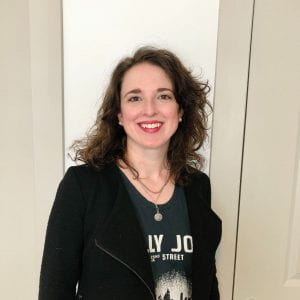 |
| Dr. Maryann Cairns (Image Source: Cairns' SMU Research Website) |
This blog post is dedicated to profiling the academic research and applied work of Dr. Maryann R. Cairns. Cairns did not initially start out studying anthropology. She earned her Bachelor of Arts in Classical Civilization and Political Science from Loyola University in Chicago, Illinois, followed by earning a Master’s of Science in International Development from Tulane University out of New Orleans, Louisiana. She entered into anthropological scholarship when she completed her doctorate in Applied Anthropology at the University of South Florida.
Cairns is currently employed as an Associate Professor at Southern Methodist University where she engages in research and mentors students in environmental anthropological research projects. She utilizes sociocultural anthropological methods to identify public health solutions as they pertain to environmental issues. Her academic and applied work has focused on water quality, environmental justice, Covid-19 responses, and more recently on waste within the fashion industry. Her research is not simply academic but also very much applied to addressing real problems occurring across the globe. She has worked on water and environmental issues throughout Greece, Costa Rica, the United States, and the Caribbean. The nature of her work has required her to work with biologists, chemists, public health professionals, engineers, ecologists, and statisticians, specifically in understanding the problems from multiple perspectives (e.g., how are people using and impacted by technology, what specific technologies are necessary to solve the problems, etc.).
Cairns is quite passionate about public outreach and communicating her work with the public. She and her students have been engaged in a variety of public outreach projects and programs. A full list of them can be found on her website, but a sample include a recent public talk about the wastefulness of the fashion industry (video linked here), podcast interviews about tourism, health, and water quality and safety (recording is available here), public lectures on environmental racism (linked here), and her work with Water for People on water sanitation infrastructure in Bolivia, which required working closely with engineers and others.
Dr. Maryann Cairns is in no way slowing down as she is near the beginning of her career. It will be interesting to see where she goes next, both academically and professionally. Given what she has accomplished thus far the impacts of her work may likely affect many of you reading this post today, even if you do not know it.
Works Cited
AAAS. (2021, May 26). PODCAST | Unhealthy Waters, featuring Dr. Maryann Cairns. Retrieved from AAAS Science & Technology Policy Fellowships: https://www.aaaspolicyfellowships.org/blog/podcast-unhealthy-waters-featuring-dr-maryann-cairns
Cairns, M. A. (2024). Our Research. Retrieved from DR. MARYANN CAIRNS: COLLABORATIVE RESEARCH ON PEOPLE AND ENVIRONMENT: https://people.smu.edu/mcairns/
Cairns, M. (n.d.). Maryann Cairns, Assistant Professor of Anthropology at Southern Methodist University. Retrieved from LinkedIn: https://www.linkedin.com/in/maryann-cairns-865647a/

